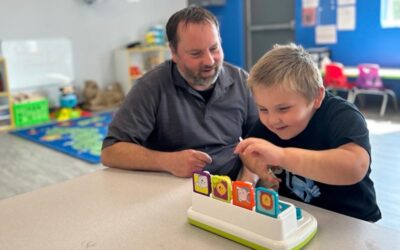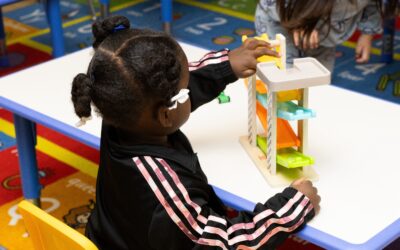Social skills and socialization always come to mind when discussing autism’s wide range of symptoms. Many children on the spectrum struggle with communication with their peers and in turn, helping them socialize to a healthy degree can be a huge hurdle. In this post we discuss autism and socialization
Social Skills and Autism’s Symptoms
Since children on the spectrum process information differently, they can encounter some hurdles when learning social skills. A few of the most common challenges can include:
- Difficulty verbalizing thoughts or delays in complex sentence formulation.
- Issues with general language skills and vocabulary.
- Inability to read social cues and in turn, inability to grasp pragmatics and prosody when speaking in social settings.
- Avoiding eye contact.
- Difficulty reading non-verbal cues and language.
- Difficulty displaying non-verbal cues.
- Challenges with attention and responding appropriately when addressed.
These hurdles may seem daunting, but there’s plenty of ways to tackle them through continued socialization.
Practice
Part of what makes socialization so difficult is the added pressure of the actual social situations your child faces in school and beyond. Some of the best ways to prepare for those is to simply practice in an environment that’s comfortable and familiar. Other household members and relatives can assist here. Try roleplay and realistic scenarios or simply including your child in your usual conversations with probing questions. Patience is key and continuing this practice can make a world of difference as your child learns how best to socialize with those around them.
Use Your Resources
In today’s largely virtual world, socialization doesn’t have to be an in-person only activity. Embrace the technology that brings us together and try a virtual play date with your child’s friends or relatives to get them practicing their social skills. These practice scenarios don’t have to be highly structured. Allow your child to explore their own thoughts and capabilities and help them practice putting those into coherent communication to others. If you’re having trouble getting your child to participate in this, try picking topics that interest them. Help them feel confident in talking about their shared interests and this can carry over into their socialization outside of the home.
For more ABA and autism-related news and tips visit our blog and follow us on Facebook, Instagram, YouTube, and Twitter! If you have questions regarding ABA therapy services or you’re interested in visiting one of our locations, don’t hesitate to reach out to us on our contact page. We’re always here to answer your questions and support your family’s needs as best as we can.



